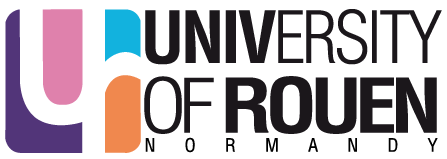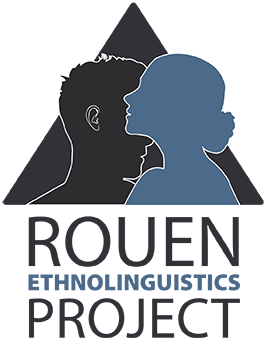In its second phase, REP aims to engage students and graduate research students to create dialogues, and record video-interviews on the questions we are working on. It will invite other actors to create events within the framework of the Rouen Ethnolinguistics Project. This reflects REP’s desire to work WITH people. REP does not want people to work FOR REP, but to work for themselves. Our partners in Caen, Lublin, and Prague realize this. Events must follow their own logic and objectives. Often events take us elsewhere. But REP hopes that we will be able to share our adventures by creating bridges in order to facilitate understanding. This will involve setting up regular events designed to promote the ongoing work of colleagues in Rouen and Normandy University, and the work of our international partners in Prague, Lublin, Belfast, Tartu, Montpelier, Paris, and Grenoble. REP will continue inventing pedagogical resources, videoconferences and conferences, but workshops and ongoing regional and international student projects will be increasingly central in this second phase.
As of September 2019, REP will be launching the Last Friday Openings, (meetings in Normandy, in Paris and held internationally, on Fridays 1pm-6pm) designed to bring together thinkers, researchers, professionals, students, and ex-students to discuss and speculate on how we live in language. In this second phase, Political actors, Artists, Journalists, Film Makers, as well as our colleagues in the Hard Sciences and the Social Sciences, will all be welcome to help us – as translators and linguists – to break out of our disciplines, to open up to new ways of asking crucial questions.
This phase will focus on fundamental elements in the world and the way worldviews socialize us into understanding and perceiving them. Inspired by the five fundamental elements of traditional Chinese thinking this should enable us to reach into the past, into tradition, and reach out to other people in the arts and in the sciences working on these elements. The five fundamentals of the traditional Chinese worldview are known as ‘Wu Xing’ in Chinese (pinyin: wuxíng). They are- Tu (earth). Shui (water), Mu (wood), Huo (fire), and Jin (metal). Focusing on how we understand, represent and translate these elements will facilitate REP’s integration into the Université Normandie’s key project, the Sea-Land Continuum (Continuum Terre et Mer).
Working with the humboldtian approach, REP will begin its second phase by bringing together people in its workshops to ask how we understand water and skin. Comment comprendre et traduire Peaux et Eaux. This sustains REP’s desire to investigate both the world, and the worldview that represents the world. Perceiving and conceiving will both be studied and scrutinized when it comes to how we come into contact with water in all its forms, liquids, rivers, seas, rain, drinks, and the very element that we contain and that contains us from the cradle to the grave.
The second phase will continue to work space and rhythm, and on the heart. The heart as the centre, but the heart also as the faculty of understanding, of thinking, feeling, desiring, willing, and remembering. From this perspective, asking how we think is not enough. Asking how we think in language is not enough. The sense of language (Sprachsinn, in Jürgen Trabant’s terms) means asking how we think, feel, and imagine in language. If we adopt this perspective, language is no longer a means of expressing reality, it is reality experienced in itself. We become in language, we interact in language. This entails something of a revolution in thinking. It asks us how we are to understand philosophy, history, society, if – for a moment – we place words and worldviews, language and languages at the heart of our concerns.
The REP website has been completely overhauled to reflect the new directions REP is exploring. This second phase will involve much more team work, and much deeper dialogues with our partners in schools and universities, on the street, in conferences, and around the world.

